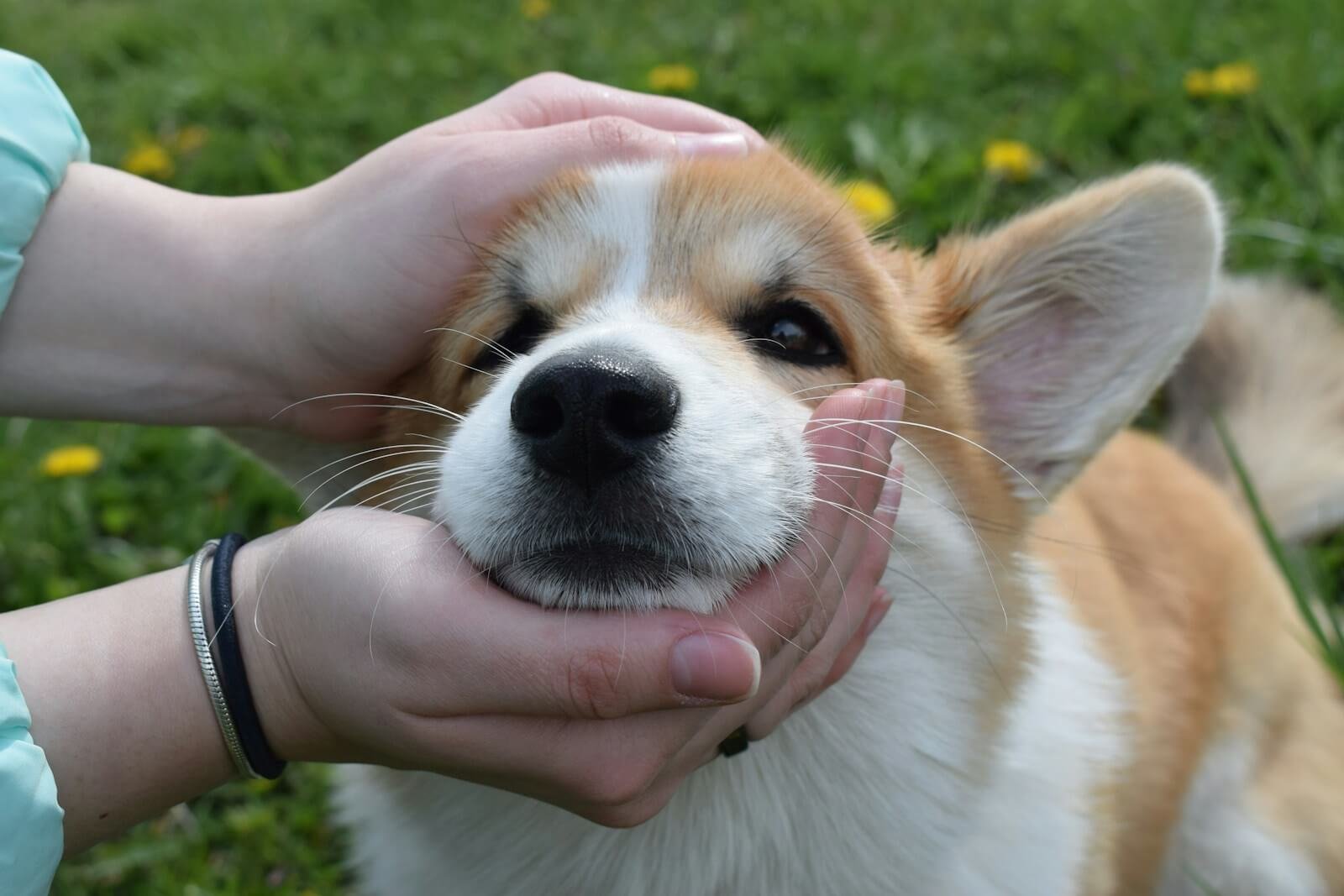Are corgis capable of aggression and if yes, when should you get worried? Find the answers to these and other questions in our in-depth article.

AUTHOR
Editorial Team
CATEGORY
Facts
POSTED ON
2 November 2024
If you’re thinking about getting a corgi, but you’ve never had one before, you might wonder whether these adorable furballs can be aggressive.
Many people find it hard to think of the corgi as an aggressive breed. After all, their stumpy legs, fluffy bottoms, friendly eyes and goofy demeanour make them look so adorable.
Yes, indeed, corgis are cuteness personified, but they are also well known for their stubborn temperament, tendency to herd children and other animals, loud barking and an inclination to nip.
But can any of this become a reason for concern or is it manageable with good training? And how aggressive is the Welsh Corgi compared to other dog breeds?
Let’s look at the facts…
What can cause a corgi to get aggressive?
While corgis look naturally calm and composed, the truth is that dogs of any breed can display aggression under certain circumstances. Here are some reasons why a corgi might get aggressive:
- Abuse
If they have been abused or mistreated, they will be highly likely to bark, gnarl and bare their teeth. In such situations, aggression is merely a defence mechanism. An abused animal will simply react with fear to a number of triggers.
- Fear
Your corgi might be anxious or afraid a number of things, such as other animals, some humans or vehicles.
- Lack of Socialisation and Training
If your corgi has never been properly socialised and trained and has behavioural issues or anxiety, this will manifest as aggression.
- Defence Mechanism
Well trained and well-behaved corgis will not attack or bite for no reason. If they feel threatened or attacked, they might start barking aggressively. Your corgi will bark at any intruders into your property and will boldly face a person, dog, or any other animal many times bigger than itself if it sees it as a threat.
- Guarding Territory and Resources
Dogs can get very defensive of their territory or their resources (food and toys) if they feel threatened, either by you or other pets. It’s important to teach your corgi while still a pup that you can touch its food and toys.
- Pain
If you touch a sensitive part of your dog’ body, it might react aggressively by snarling or nipping. Likewise, be gentle when your corgi has an injury or is sick, as it might react aggressively if you cause it pain.
Your corgi will also get loud if it seeks attention, for example when it’s hungry, thirsty, tired or bored. If that’s the case, learn to recognise the signs, so that you don’t misconstrue your dog’s needs for aggression.
Don’t Mistake the Corgi Character For Aggression
It’s vital to know that the Welsh corgi is a shepherd heeler. For nearly a thousand years, these canines have been bred as working farm dogs. Due to their small size, they are capable of easily nipping at the heels of large cattle without getting kicked, and thanks to their loud voice they can easily guide the livestock around pastures and farms.
Corgis carry the herding instinct in their genes.
Even though many of today’s corgis might live in cities, they are still inclined to herd small animals, children and even grown-up humans. They are loud when they bark, and they might nip during playtime or when agitated, unless trained to do otherwise. But worst of all, they can be very bossy, pig-headed and temperamental.
While all of the above sounds like a handful of pesky behaviours, you have to keep in mind that many dogs have such traits, and some breeds can be far worse and more difficult to manage. In fact, you might be thinking “Wait a minute, that’s hardly aggressive behaviour”, you are right.
Corgis do not give chase to hunt – but to herd.
A corgis that has been well socialised and well-trained at an early age can be the friendliest, most obedient dog ever. While your corgi might continue to display the traits characteristic of the breed (nipping, herding, loud barking), it won’t attack you or disobey you and will instead be a highly protective guardian of you, your family and your property.
What can put a well-behaved corgi on edge?
So… you have properly socialised and trained your corgi, and you think it might never bark, nip or snarl. Think again! At the end of the day, even the best-behaved dog is still a dog and there are some things that might send it over the edge. Here are some examples:
- Leaving your corgi alone for extended periods of time can lead to problematic behaviour and separation anxiety. Your corgi will begin to bark or get overly agitated around you, which you might perceive as signs of aggression.
- Lack of sufficient mental and physical stimulation can also seriously affect your corgi’s health and wellbeing, manifesting as erratic behaviour that can be downright irritating and even destructive to your furniture and belongings. Just like any other dogs, without stimulation corgis can begin to act aggressively.
Don’t’ despair if you can’t spend enough time with your corgi. You can always consider hiring a pet sitter so that your furball gets the attention and stimulation it needs.
How well does a corgi respond to other animals?
Properly socialised corgis tend to be very well behaved around other dogs. Overall, they can be affable and playfully friendly. They won’t bark and display aggression unless openly provoked or attacked. That being said, every corgi has its own character, and while one might be friendly or indifferent toward all other dogs, another might be a little shy or fearful.
Corgis get along just fine with familiar cats and smaller pets, too. Keep in mind though that around smaller animals, the corgi’s herding instinct tends to kick into gear. Leave your corgi in the same space with an unfamiliar cat and you can expect a cat and mouse chase. While your corgi thinks that’s a lot of fun, you and the cat might not see it that way.
Ultimately, how well your corgi behaves around any other four-legged creature boils down to proper socialisation and training.
Are corgis good with kids?
Corgis are very protective of their owners and will most likely do their best to keep your kids safe rather than show any aggression toward them. Most corgis can be very docile, gentle and careful around toddlers, too. They might try and herd little kids when outdoors, but overall, a properly socialised and trained corgi that does not have any behavioural issues, should be a very good family companion and guardian.
Give your corgi proper training
In addition to getting your pup socialised by letting it spend sufficient time with other dogs, you should also train it while it’s still young. You can train your corgi on your own or you can solicit the help of a professional trainer. You must make sure that your dog has been taught the right behaviour as soon as it joins your family.
The good thing about corgis is that due to their natural intelligence and obedience, they can be very fast learners. Teach them how to behave early on and you will have the least aggressive dog you could imagine.
If you’re uncertain about the root cause of aggression in your corgi, and cannot manage its behaviour always consult a professional, such as a vet and a trainer to identify the source of the issue and the best way to address it.






